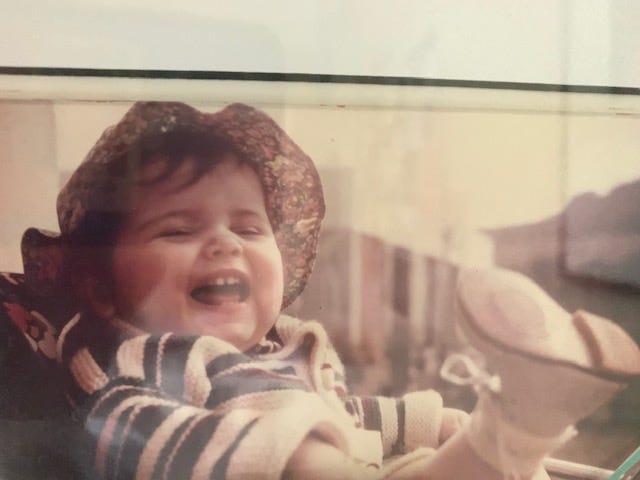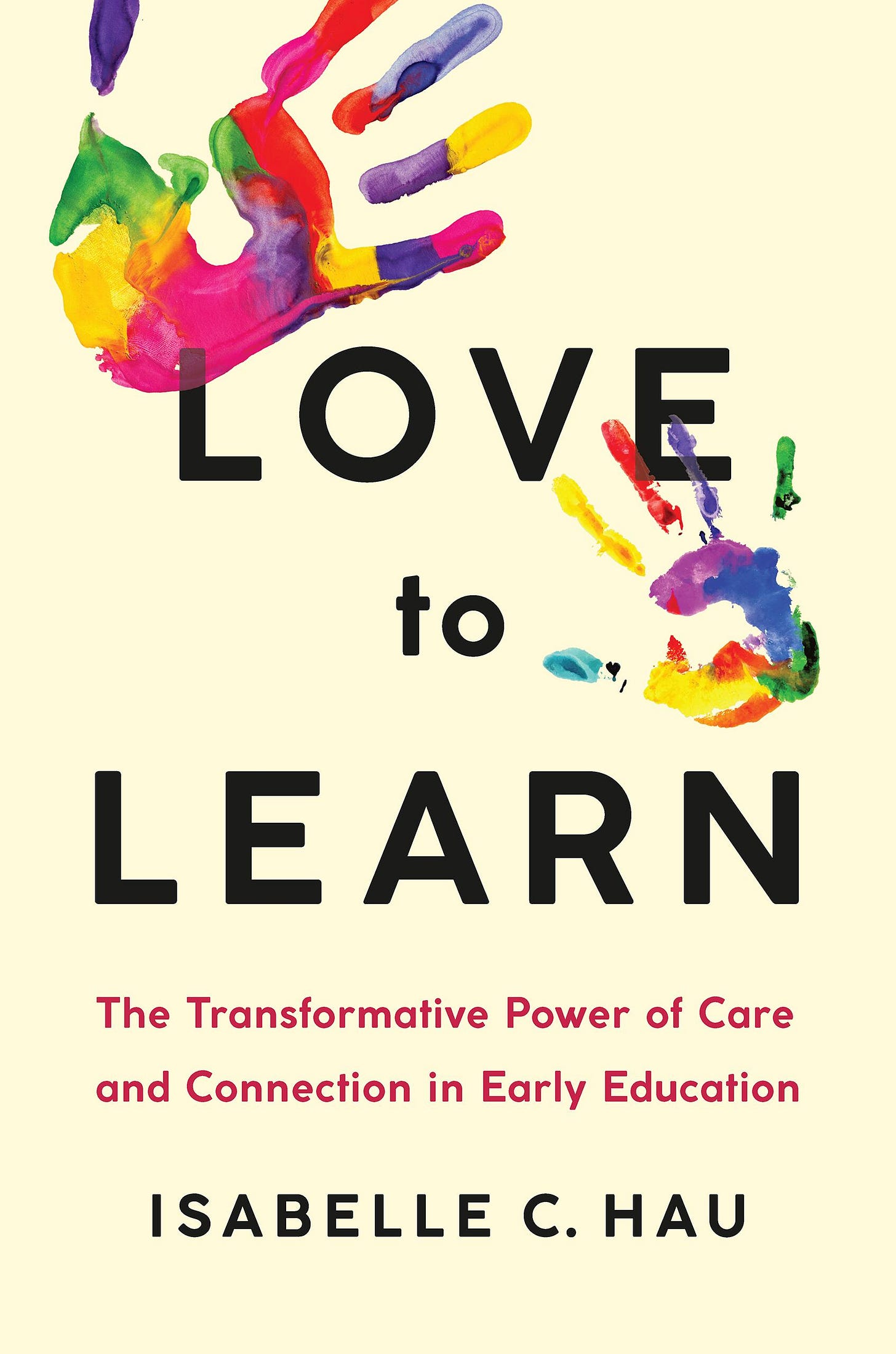That Loneliness Epidemic? It Begins in Preschool
Isabelle Hau on how the early relationships stave off loneliness later in life

When I was 18 years old in college I joined a sorority. “Rush” required us to come back from winter break several days early and go on a series of meet-and-greets that probably did more to shore up my small talk skills than any other college course could. I was friends with two upperclassmen, who’d effectively recruited me to their sorority. At some point during the pledge process, someone told us to look around the room at the women we didn’t know, because these would be some of our best friends from college.
It was, at the time, a sort of insurance policy of friendship for the next four years.
Well, it didn’t turn out like that. By junior year I went abroad and though I remained friendly with some of the girls, I’m not in touch with any of them as adults. (And this was in the pre-Facebook days, where keeping in touch with people required being more intentional about it). But the structure of the sorority reminds me of the ways we seek to insulate ourselves from being lonely. As the former surgeon general has told us, being lonely is unhealthy. It’s not good for us, for our marriages, our kids, our health, or even our pocketbooks.
So I was fascinated to talk to
about her version of what is causing this loneliness epidemic. It’s not the lack of sororities in adult life - it’s quite the opposite. The lack of strong relationships in early childhood is what is facilitating this loneliness outbreak.We often frame child care as a critical piece to making life more manageable and affordable for parents. High quality care and education is something we know benefits kids, both with the increased socialization and improved kindergarten readiness.
But loneliness?
Apparently so.

Hau, director of the Stanford Accelerator for Learning, believes that for adults to feel more connected to one another, they need strong relationships in early childhood. Hau’s new book, “Love to Learn: The Transformational Power of Care and Connection in Early Education,” tackles this crisis head on, with all indicators pointing toward the power of early care.
Hau concludes that while kids need strong early relationships to thrive, those same relationships are among the single strongest predictors of a child’s later success and ability to overcome adversity.
“We have a huge body of science that says relationships matter for children in life,” said Hau. “However, children are more and more isolated, and while there’s more discussion on loneliness and isolation among adults, I believe that the problem starts in the early years.”
“We have a huge body of science that says relationships matter for children in life,” said Hau. “However, children are more and more isolated, and while there’s more discussion on loneliness and isolation among adults, I believe that the problem starts in the early years.”
Part of that problem is our very small family units. Hau says the number of families with only one child has doubled over the past 30 years. And it’s intergenerational; more than half of grandparents have at least one grandkid who lives more than 200 miles away. And only 3% of children have been interacting with someone above age 65 that is not their direct grandparent.
Before COVID-19, one in five young people lacked a single caring adult in their lives, and since 2020, almost half of high school youth reported having no supportive relationships, a decline by half from a decade earlier. Hau calls this “relational scarcity.”
Hau answered a number of my questions for a Q+A with Early Learning Nation, and she was kind enough to include a few more to share on Substack.

Q: How did early childhood become the focus of your academic career?
Isabelle: When I was a very young child I was late at everything, late walker, late talker, and so age three my parents had me take a psychological test and the test came back and said I had low academic aptitude which is not great news when you are parent and that is the outcome. My parents enrolled me in a beautiful child care facility and public preschool - mind you, I was born in France where they have a beautiful early childhood system and all of it was very high quality. The teachers that I had at the time made a huge impact on my trajectory. Since then, when I look back, I believe that this moment of benefiting from high quality early education made a huge impact. Which is why I have focused on early childhood education as a huge part of my academic life.
Q. So you were able to prove the aptitude test wrong?
Isabelle: There were some concerns when I was young, but I think what really made a huge positive impact was the early years between age 3-5 when I was enrolled in both settings that put me back on track. There were two programs - the French system is structured in a way so that the equivalent of preschool starts at age 3. Right before age 3 my parents enrolled me in a child care facility, a much smaller environment in this little house where my parents were living in the village. We were still in touch with the early childhood educator because my parents still live in the same village.

Q. You focus on the need for relational learning at school, and how not enough attention is given to teaching this. Do you see that shifting, and what do you think progress in this area would look like?
Isabelle: There are many promising experiments happening in early childhood settings, but I would love to see more schools intentionally focus on the importance of relationships. Most teachers enter the profession because they are deeply relational and passionate about building meaningful connections with their students. Yet our current systems often fail to prioritize relationships. For example, early childhood educators are often moved between classrooms early in their careers, disrupting the relationships they strive to build. They often leave the profession as a result. There are concrete steps we can take, such as dedicating more time to free play/recess, or guided play during class, setting relational goals, and starting each day with connection circles. These small but powerful changes can make a big difference in fostering meaningful relationships in early education.
Q. So many of us put so much pressure on ourselves as parents. Is this something you see having changed over generations, or are we increasingly getting harder on ourselves?
Isabelle: The data is clear that we are getting harder on ourselves. The way we are parenting has changed a lot. The sources of information on how we parent have evolved a lot. Before we were mostly looking at our own group, asking another mom and dad. Now we have a lot more examples - more people are looking to Google or Tiktok, and the problem is that especially on social media platforms, there is often an idealization of what parenting means. What is this star doing? What are the best practices parents are using? There is clearly an idealization of parenting that has emerged and that has paired with an increasing concern from parents on safety, which has been trending up. An increasing concern about safety from parents which is largely led by the media - it is not clear there is more kidnapping or more issues with young children. What is clear is that parents are increasingly concerned about safety. Which leads to less play, kids are going less and less by biking to school, or going by themselves to a supermarket. Even in my own family unit, I am observing it myself. All of these interesting safety concerns that are not necessarily founded in what the risks are- which are very minimal.
A portion of this essay was adapted from the article The Power of Early Relationships published at Early Learning Nation.





During COVID, the concern that the early childhood educators in my college courses raised most often was, how will these kiddos ever recover after missing this type of social experience at such a crucial developmental moment? One thing I've found reassuring over the years, that I've seen time and again in my work in early intervention and as an educator working with elementary, high school, and college students, is that missing an opportunity at a key developmental moment does NOT mean that that set of skills and knowledge is lost for good—it means acquiring the same skills and knowledge will take more time, more repetition/opportunities, and often more scaffolding, but will still be possible. Early childhood social/relational experiences are absolutely key; they definitely deserve more attention, and focusing this attention on neuro-inclusive social/emotional learning would be of huge benefit too; and also, kids are (in broad terms) stunningly resilient and have a high propensity for catching up, even if it takes longer and needs more support.
This was an interesting read - I have a few questions! Are the relationships here with adults, or with other children? Or both? How do we square children being 'more and more isolated' with the ever increasing amount of childcare that they go to? Is it the childcare that doesn't provide the relationships, or the family structures (which, as noted here, are getting smaller)? Or again, both?